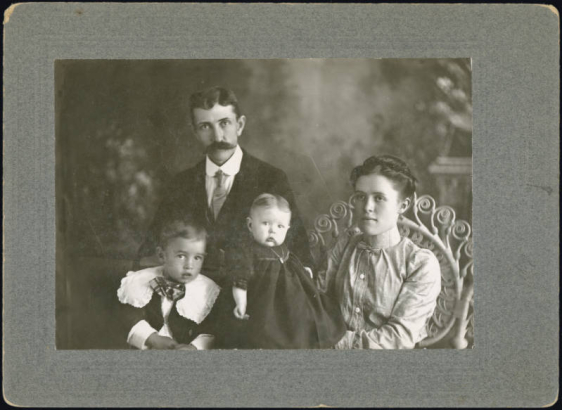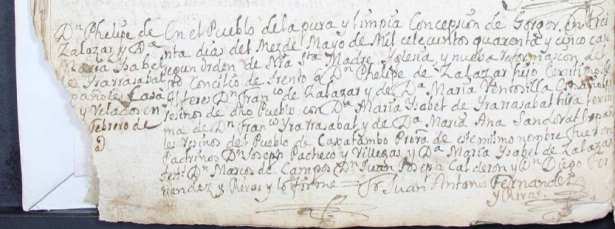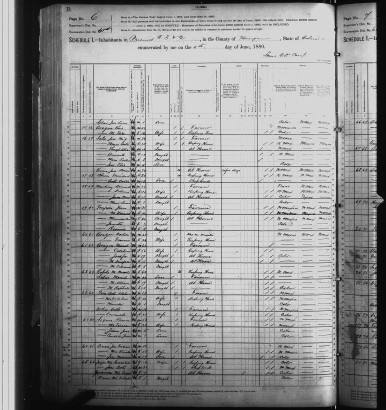The staff at the DPL Western History and Genealogy Department have drafted a series of tips and strategies for researchers working on Hispanic and Southwest genealogy. Each month, we will highlight a topic relevant to researchers tracing ancestors in this area since it has its own share of unique challenges and opportunities. Part of this month’s topic was originally published in the September 2021 issue of the library’s official magazine, Engage.
Is it Salazar, Salasar, Zalasar, or Zalazar?
Both names and surnames have gone through spelling changes through the centuries as the Spanish language evolved and changed. Some places adopted modern spellings earlier than others. For example, the modern spellings of Tomás and Josefa can be seen as Thomas and Josepha in some older records. Surnames can also vary before standard spellings took precedence in the 20th century and, in some records, researchers will even see the same surname, such as Salazar, spelled in multiple ways.
Some researchers obsess over the standard, modern spelling instead of using all the variants to widen their search. Researchers should look for all the variants of both names and surnames. This can be done in some databases and websites using wildcards, other times you will have to go through each variation, such as Jaramillo, Xaramillo, Jaramiyo, Xaramiyo.
Abbreviations
In addition to given names, surnames have also been abbreviated and shortened. One example is Baca or Vaca, a widespread surname in Colorado, New Mexico, other parts of the Southwest, and Mexico. The last name is a shortened form of Cabeza de Vaca and can be found with both (V) and (B) spellings, although in modern Spanish “baca” is a type of a luggage rack while “vaca” means “cow.” Over the centuries, the surname was abbreviated to C. de Baca and in some families shortened to simply Baca. In some places the name was Anglicized with an apostrophe, despite Spanish not using apostrophes in names and rarely, if at all, in other words.
Other abbreviations commonly encountered by researchers may include Mª for María, Je for José, Jn for Juan, and others. Priests, clerks, and scribes abbreviate names to save ink, paper, and time. It is important to become familiar with the abbreviations and how to use wildcards because some websites index names exactly how they appear in the records, meaning Je Mª Cabeza de Vaca is not the same as José María Cabeza de Vaca.




Add new comment